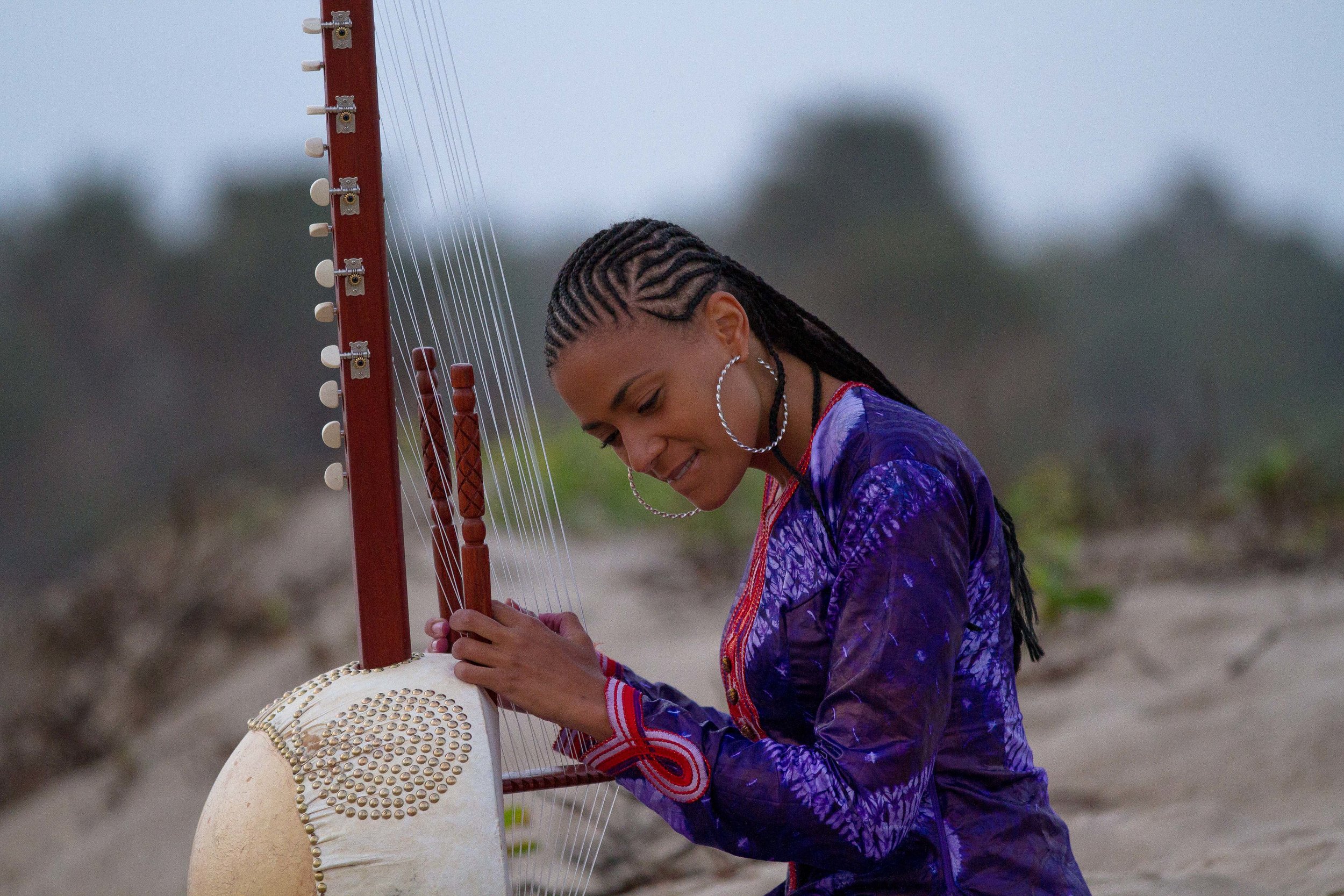Manding griot
Kartong, The Gambia
Proclaimed by BBC Radio as “a griot for a new generation of West Africans,” Sona Jobarteh is proof that sometimes the most important keepers of a tradition are those who break new ground. She was born into one of the five principal griot families, whose hereditary roles were as praise singers, oral historians, and musicians of the Manden Empire. Taking up a male tradition that stretches back over seven centuries, Jobarteh is the first female kora virtuoso. Today she plays a central role in preserving this ancient art in The Gambia.
The tradition of the jeli (more commonly known outside West Africa by the French term griot) is central to the preservation of culture among the Manding peoples of The Gambia, Senegal, Mali, and Guinea, the West African nations that were once the heart of the powerful Malian (or Manden) Empire. The role of the jeli or griot is traditionally passed from father to son. Only male griots could play the kora, the long-necked, 21-stringed lute-harp with a calfskin-covered calabash gourd resonator that is one of the most important instruments in Manding culture. Women in these families were known as griottes; while they sang the repertoire, they did not play the kora as Sona does.
Sona’s grandfather, Amadu Bansang Jobarteh, was a leading griot of his generation, and her father, Sanjally Jobarteh, was his musical heir. Sona was born in 1983 in London, where from a young age she was immersed in the tradition that her father was passing to her brother, Tunde Jegede, 11 years her senior. Sona became Tunde’s student, and she had her first public performance with him at London’s Jazz Café when she was only five. Although it was completely new for a girl to take up the kora, Sona’s grandmother in The Gambia was so committed to seeing the legacy continue that she made sure the budding musician traveled frequently to The Gambia to nurture her cultural roots. After forays into classical and jazz, in her late teens Sona rededicated herself to intensive study of the kora and griot tradition with her father. By her late 20s, she had forged a solo career as a singer, instrumentalist, and composer of world-class caliber.
As Jobarteh pursued advanced degrees at SOAS (School of Oriental and African Studies), University of London, she also began to teach her own students, and to facilitate summer enrichment programs for them in The Gambia. Finding it ironic that African students were coming to Europe to pursue higher level studies on African culture, Sona embraced the idea that, for Africans and Europeans, “the home of that study should be in Africa.” Since 2014, she has been building the Gambian Academy of Music and Culture, a multifaceted cultural institution, and the first of its kind in The Gambia. The skills of the young students at its Junior Academy have captured the attention of local and international politicians, and, in the footsteps of their mentor Sona Jobarteh, these young ambassadors have taken that opportunity to advocate forcefully for the needs of all Gambians.


